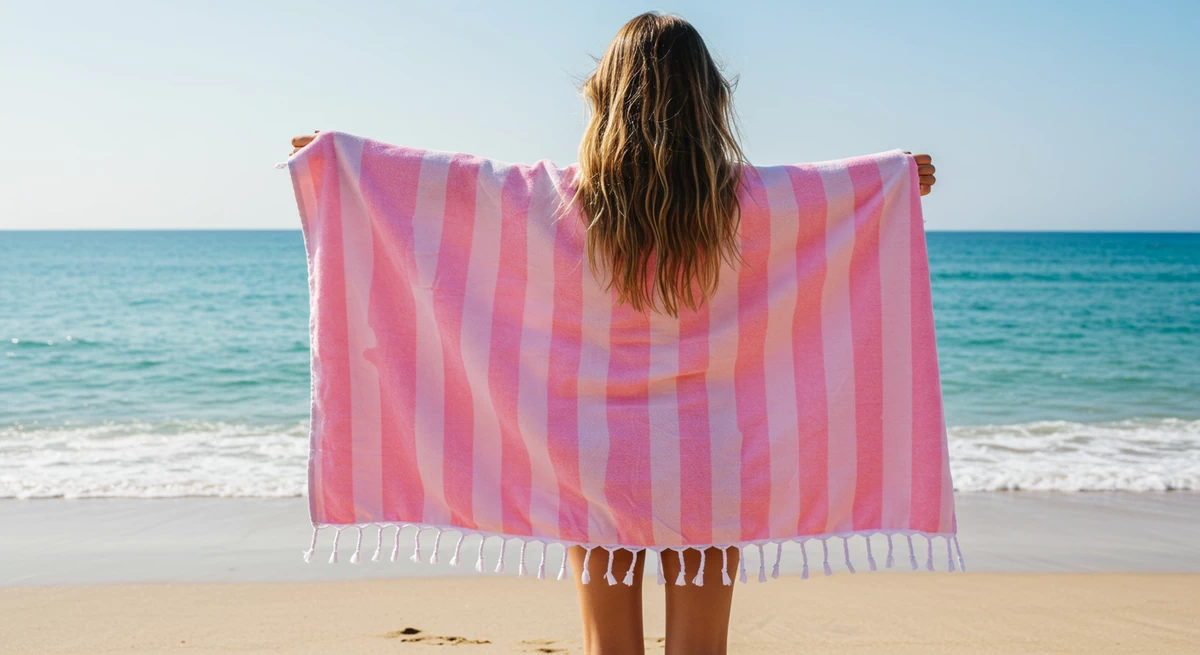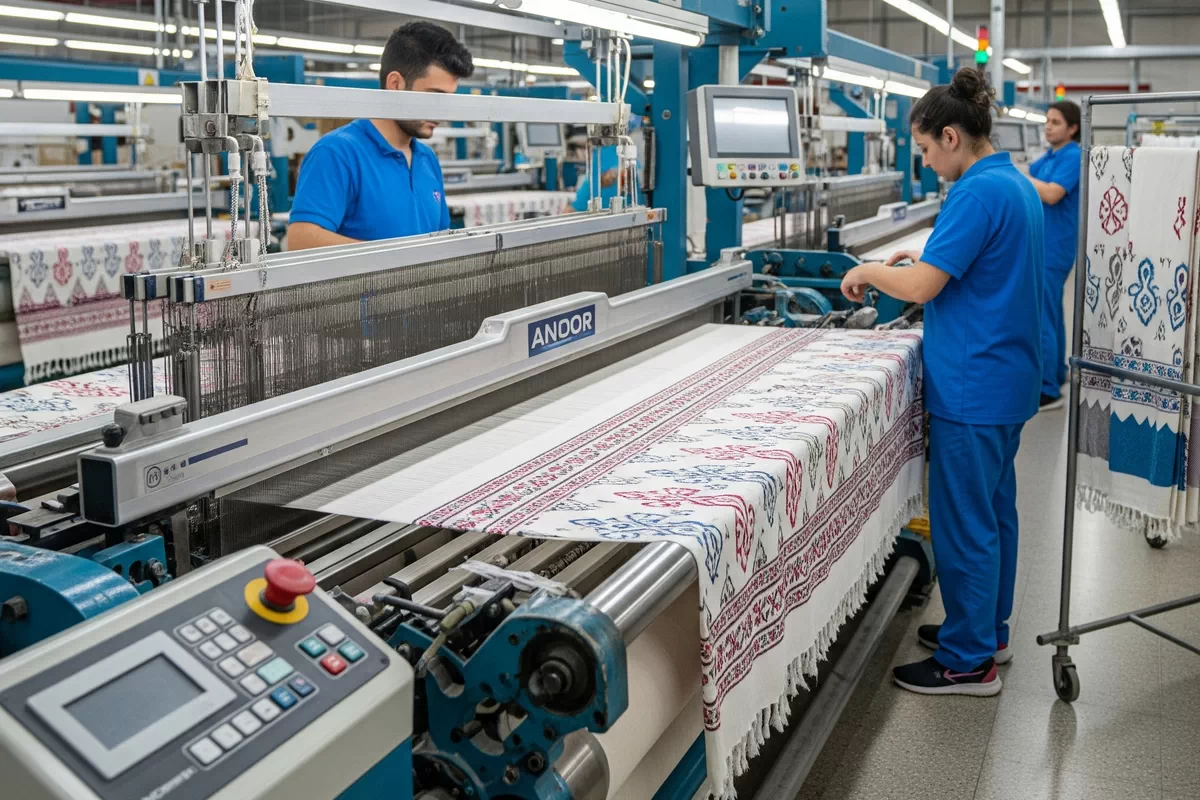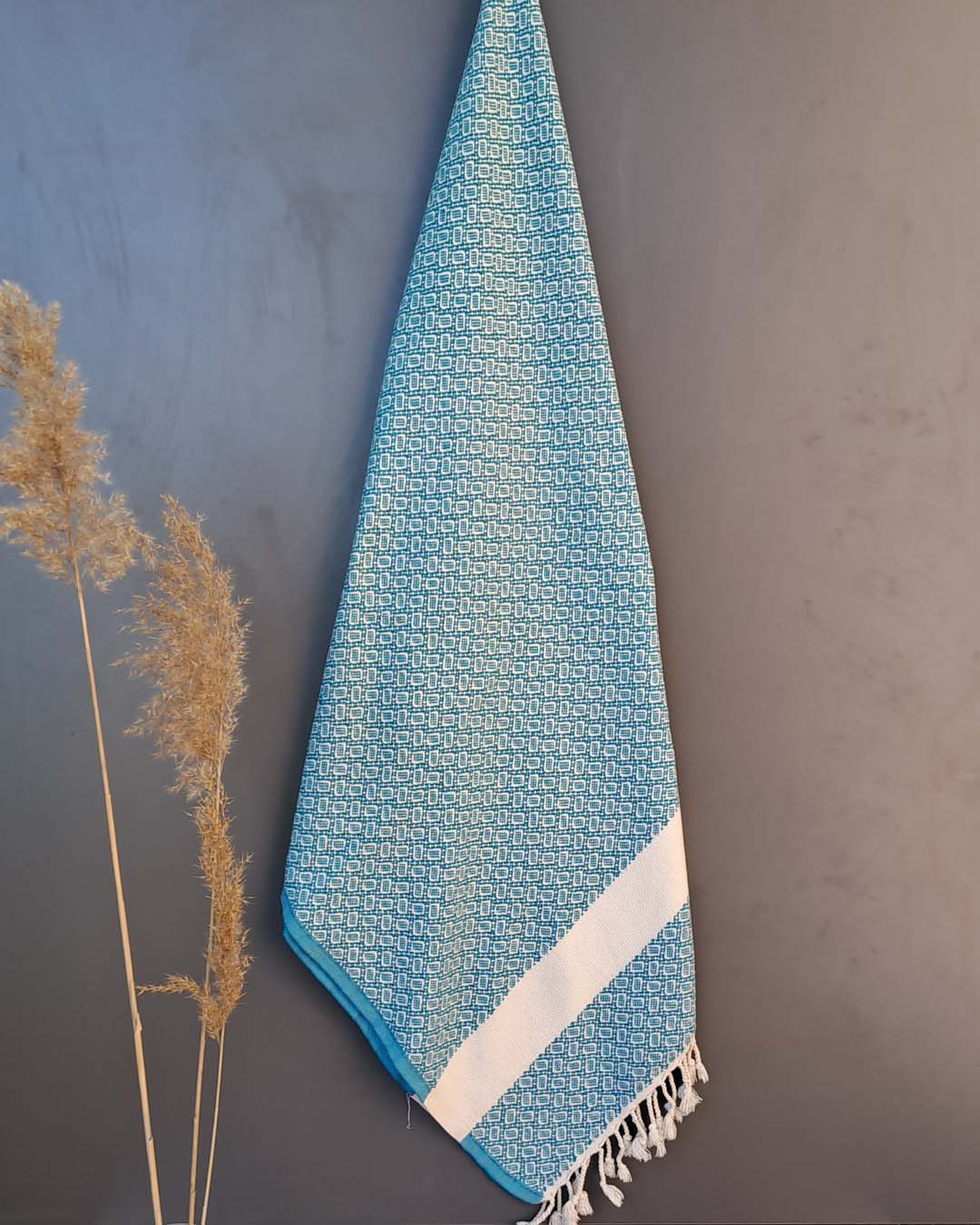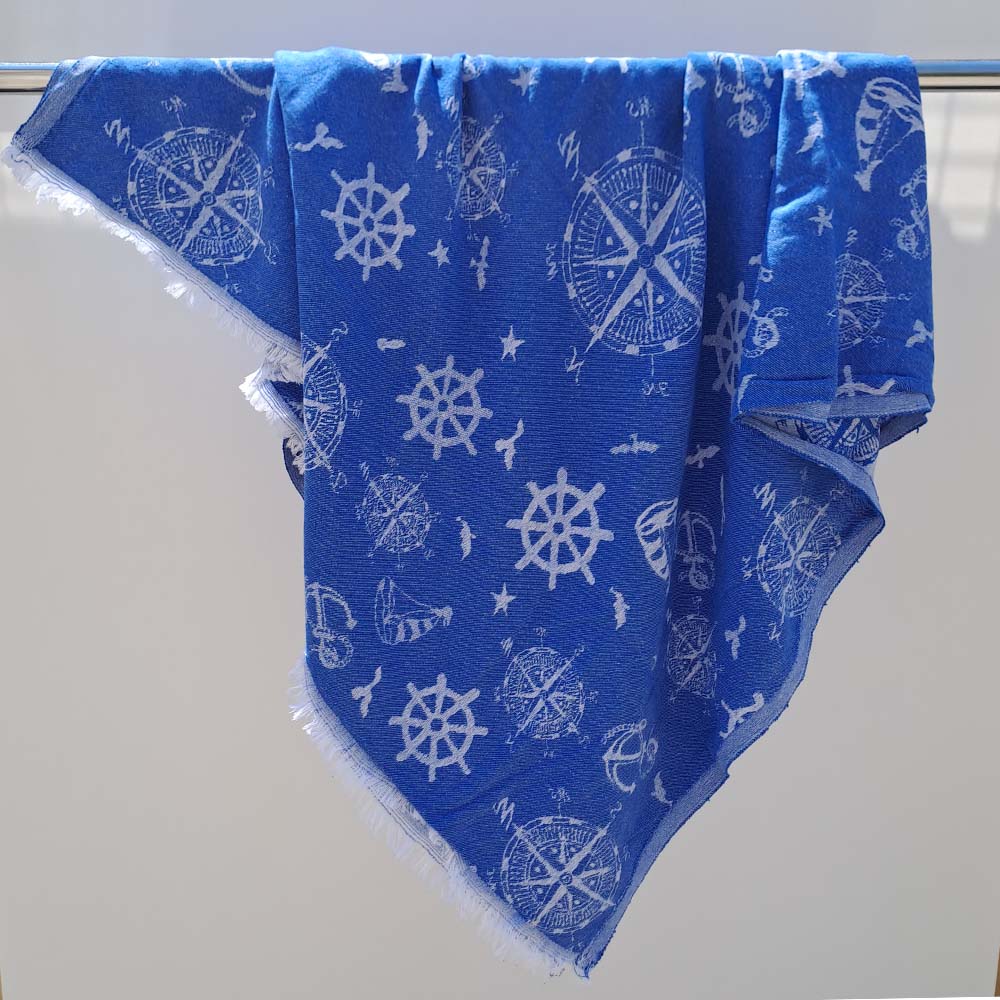What is a Peshtemal? A Value Rising from Tradition to the Present Day. A traditional textile product that has been an indispensable part of Anatolian culture for centuries, the Peshtemal has regained its value in recent years in both local and global markets. Known for its lightness, quick-drying properties, and natural feel, the peştemal has evolved from being a symbol of hamam culture to finding a wide range of uses today, from beaches to spa centers, and from home bathrooms to hotels.
The modern consumer’s growing preference for natural and sustainable products has directly increased interest in the weaving style, thread quality, and comfort of peştemals. Especially hand-woven Peshtemal have become the favorite of conscious consumers and boutique businesses seeking high quality.
In this article, you will gain in-depth knowledge about peştemal weaving techniques and learn the key factors to consider when purchasing peştemals in bulk, enabling you to make informed decisions. Based on data from experienced manufacturers in the industry, current price analyses, and quality criteria, this content will help you make profitable and sustainable purchasing decisions for your business.
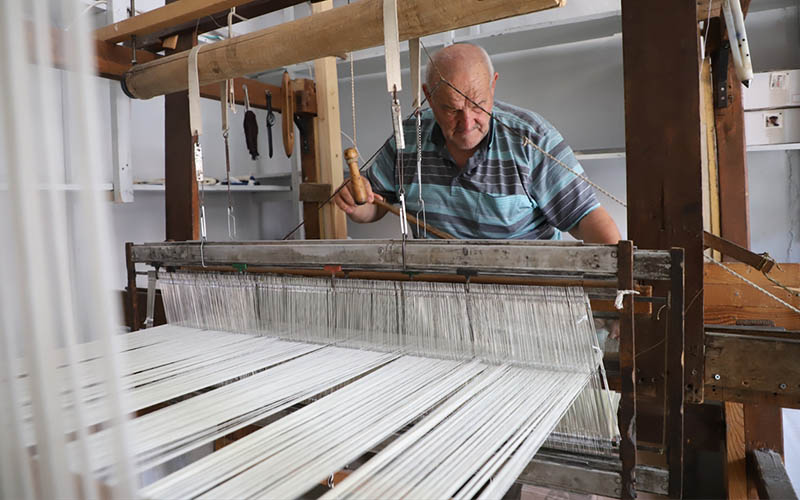
Peshtemal Weaving Techniques and Quality Criteria
The most important factors determining the quality of a peştemal are the weaving technique, the type of yarn used, and the production method. In this field, where traditional Anatolian craftsmanship meets modern production technology, consumers expect both aesthetic and functional products.
Hand-woven vs. Machine-woven Peştemals
Hand-woven peshtemals are produced by master craftsmen on traditional looms, and each one is unique. The weaving density, thread transitions, and details are highly characteristic due to the handcrafted nature of the product. These types of peştemals:
- Have a more durable structure.
- Offer long-lasting use.
- Are typically made with organic threads.
- Are preferred by boutique businesses and luxury hotels.
On the other hand, machine-woven peştemals are more affordable due to the advantages of mass production. They offer the ability to produce large quantities quickly for businesses making bulk purchases. However, quality depends on the quality of the thread used and the attention to detail in the production process.
Factors Influencing Quality
- Yarn Type: 100% cotton, bamboo, linen, or blended yarns can be used.
- Weight: The ideal range is typically 250-350 grams to maintain lightness while enhancing absorbency.
- Weave Density: The denser the weave, the stronger and more comfortable the peştemal.
- Color Fastness: Products dyed with high-quality dyes do not fade in the wash.
- Seam and Fringe Quality on the Edges: This is an important detail to consider for durability.
When purchasing a peştemal, pay attention not only to its appearance but also to the weaving details, the certifications of the materials used, and the expertise of the manufacturer to ensure long-term satisfaction.
What to Consider When Buying a Peshtemal?
With countless peştemal varieties available on the market, both individual consumers and businesses seeking high-quality, long-lasting products must pay attention to certain basic criteria. Going beyond appearance, details such as the product’s raw material, weaving structure, and manufacturer information should be carefully evaluated.
1. Fabric Content and Thread Quality
Peştemals made from 100% cotton, bamboo, or linen threads are more natural and healthier. Threads with skin-friendly and hypoallergenic properties are ideal for businesses such as spas and hotels.
2. Weave Density and Weight
Loose weaving can lead to pilling and deformation over time. Peshtemals with a weight of 250-400 grams are both lightweight and absorbent.
Tip: If the fabric appears overly translucent when held up to the light, the weave may be weak.
3. Color and Print Quality
Cheap dyes may fade over time. Peştemals dyed with reactive or natural dyes ensure long-lasting use. For brands making bulk purchases, the durability of the logo print is an important criterion.
4. Fringe and Stitching Details
A high-quality peştemal has sturdy fringes of equal length. Neat side stitching prevents the product from unraveling over time.
5. Certification and Label Information
- Internationally recognized certifications such as OEKO-TEX® guarantee that the product does not contain harmful chemicals.
- The “Made in Turkey” label is a quality indicator, especially for handwoven products.
6. Suitability for Intended Use
Different types of peshtemal should be chosen for different purposes such as hamam, beach, sauna, home bathroom, spa, or promotional use.
For example: Wider sizes are suitable for the beach, while soft-textured peştemals are ideal for hotel bathrooms.
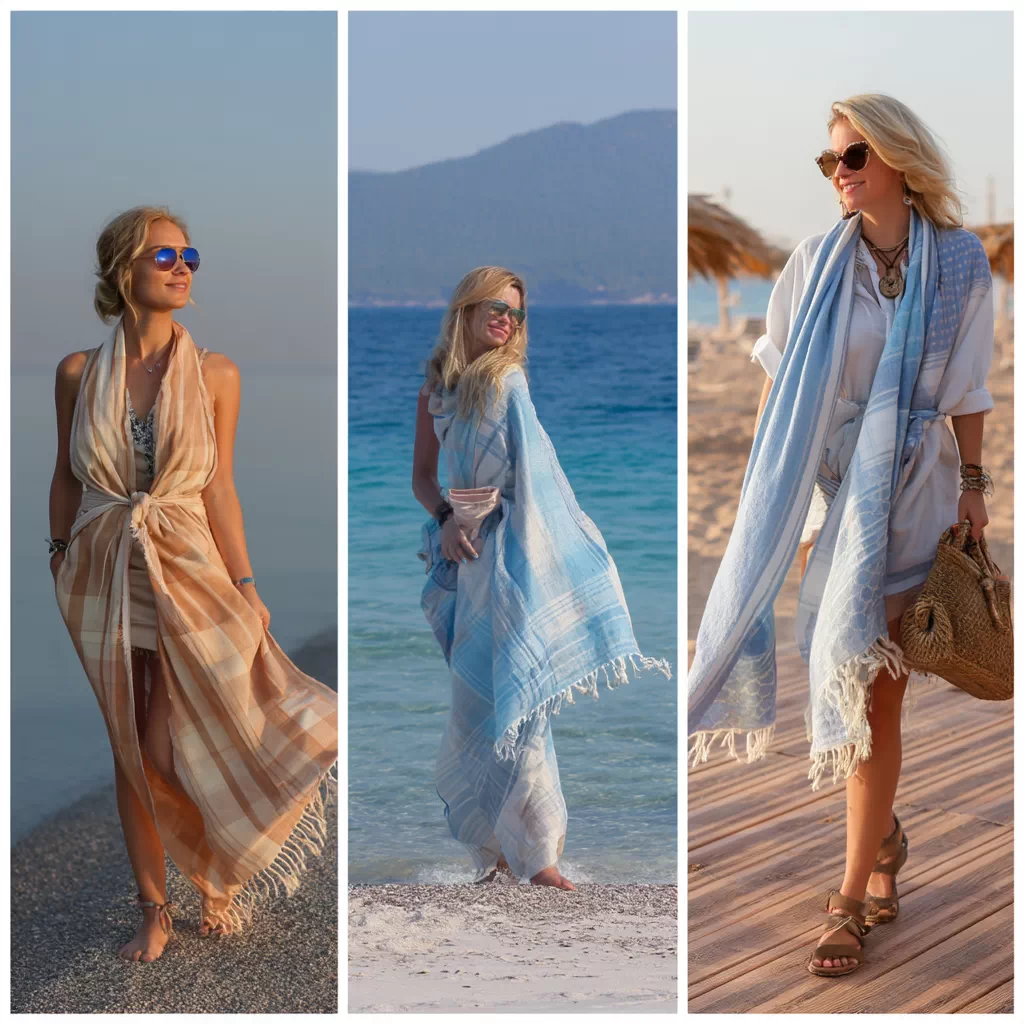
Factors Affecting Wholesale Peshtemal Prices
For businesses looking to purchase wholesale peştemals, the price-performance balance is of critical importance. Especially for hotels, spa centers, boutique stores, and e-commerce sellers, accurately calculating the unit cost directly impacts profitability. However, production cost is not the only factor determining peştemal prices; numerous technical and commercial factors influence the overall pricing.
1. Yarn and Weaving Quality
- Natural yarns such as 100% cotton, bamboo, or linen increase the price.
- Handwoven products are more expensive due to labor costs.
- Products with higher grammage and weaving density are more durable and therefore more expensive.
2. Order Quantity
- Manufacturers typically reduce the unit price as the order quantity increases.
- The price difference between orders of 100 and 1,000 units can be quite significant.
- The minimum order quantity (MOQ) varies by manufacturer and affects the price.
3. Custom Design and Brand Customization
- Additional costs for molds, printing, and labor are charged for logo-printed, labeled, or custom-patterned products.
- “Private label” production for boutique brands is generally more expensive than standard products.
4. Production Time and Seasonal Demand
- Production demand increases during peak season (before summer), which can increase both production time and price.
- Discounted prices are typically offered for orders placed during the winter months.
5. Packaging and Logistics
- Custom packaging requests can increase packaging costs.
- Domestic and international shipping costs can account for 10-25% of the total cost.
6. Manufacturer’s Location and Production Capacity
- In countries like Turkey, which are strong textile producers, prices are more competitive.
- The quality/price balance may vary between small workshops and large manufacturers.
Tip: Seeking cheap products can lead to higher costs in the long run, such as returns and customer dissatisfaction. Working with a quality manufacturer is always a more sustainable solution.
Advantages of Wholesale Purchasing: Why Wholesale Instead of Retail?
Whether you are a hotel operator or an e-commerce entrepreneur, wholesale peshtemal purchases offer strategic benefits in terms of both cost advantages and brand control. For professional buyers looking to create a sustainable and profitable supply chain, wholesale purchasing instead of retail makes a big difference in the long run.
1. Unit Cost Advantage
- As the quantity increases in bulk purchases, the unit price decreases.
- By purchasing at prices below retail, you can achieve high profit margins.
- Product supply at a fixed price is possible even outside of promotional periods.
2. Custom Production for Your Brand
- You can have products produced with your own logo.
- You have control over design, patterns, and color options.
- This means unique product sales, especially for boutique brands.
3. Stock Continuity and Supply Guarantee
- You can secure your stock by ordering production at specific intervals.
- It is easier to create a consistent product line for businesses that frequently update their products.
- Direct communication with the manufacturer is possible in case of urgent needs.
4. Professional Service and Support
- Wholesale customers benefit from customized production consulting, sample shipments, and fast communication.
- Price stability is ensured through a contractual working model.
- Quality control processes are prioritized.
5. Logistics Ease and Single-Shipment Supply
- Shipping costs are minimized with bulk product purchases.
- Time and labor savings are achieved.
- For those exporting internationally, single-source shipping is a significant advantage.
Remember: Wholesale purchasing isn’t just about buying more products; it’s also about controlled growth, cost optimization, and brand management.
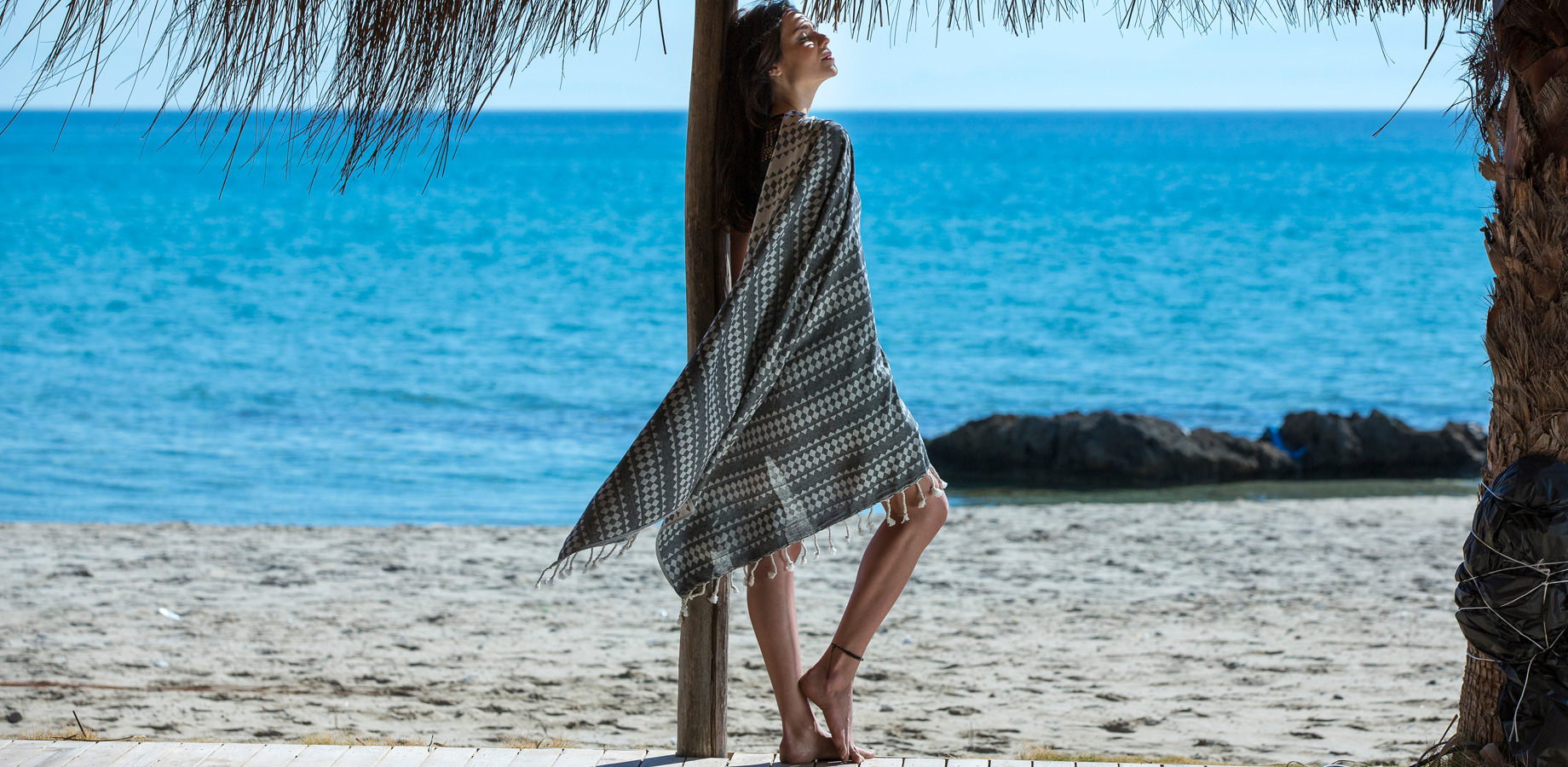
Things to Consider When Choosing a Peshtemal Wholesaler
Wholesale peshtemal supply is not just a price-driven decision; it is also a choice based on quality, trust, and sustainable business partnership. Choosing the wrong supplier can negatively impact your brand, not only in terms of product quality but also in terms of delivery delays. Therefore, choosing the right wholesaler is particularly important for long-term projects.
1. Production Experience and References
- Manufacturers that have been operating in the industry for many years are more reliable in terms of both quality and process management.
- The brands the wholesaler works with, customer reviews, and previously manufactured products should be evaluated as references.
2. Production Capacity and Delivery Time
- Suppliers with a strong production line capable of producing quickly according to order volume should be preferred.
- Delivery times should be clearly stated, and the production plan should be professionally managed.
3. Sample Service
- Free or low-cost sample delivery before bulk orders is an important advantage for testing product quality.
- Sample evaluation can assess weaving, yarn quality, print quality, and color vibrancy.
4. Certified and Standard-Compliant Production
- Products with quality and health certifications such as OEKO-TEX® provide assurance.
- Production facilities that have undergone audits for hygiene, environmental standards, and worker rights are a significant plus.
5. Return and Exchange Policy
- In cases of errors, especially with large-volume purchases, the supplier’s solution-oriented approach is critical.
- A clear return or exchange process is the foundation of long-term collaboration.
6. International Shipping Capability
- Suppliers who are familiar with customs processes and packaging and labeling requirements should be preferred for exporters.
- Shipping times and international delivery options should be clearly stated.
Pro Tip: Evaluate peshtemal manufacturers not only based on price, but also on quality assurance, sustainability practices, and communication skills.
Get the Right Peshtemal from the Right Wholesaler
peshtemal is a functional and aesthetic product that has established a solid place for itself in both traditional and modern worlds. However, bringing out the true value of this product is only possible with the right weaving quality, a reliable supplier, and sustainable production. Especially in wholesale purchases, factors such as quality, price, delivery time, and producer guarantee must be carefully evaluated.
Whether you are a boutique brand or a large hotel chain, choosing the right peshtemal for your business directly impacts the experience you offer your customers. By acting with the information shared in this article, you can establish a long-term and profitable supply process.
📩 Now it’s your turn!
✔️ Contact us immediately to discover high-quality weaving, competitive wholesale prices, and custom production options tailored to your brand.
✔️ Request a sample and experience the quality firsthand.
✔️ Don’t miss out on our special discounted price offer for your first order!
The right peshtemal is an essential part of a strong brand image.
Take action now and make a difference with your product quality.

